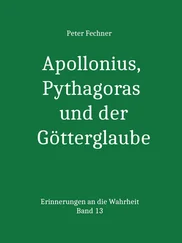(ll. 1240-1256) Alone of his comrades the hero Polyphemus, son of Eilatus, as he went forward on the path, heard the boy's cry, for he expected the return of mighty Heracles. And he rushed after the cry, near Pegae, like some beast of the wild wood whom the bleating of sheep has reached from afar, and burning with hunger he follows, but does not fall in with the flocks; for the shepherds beforehand have penned them in the fold, but he groans and roars vehemently until he is weary. Thus vehemently at that time did the son of Eilatus groan and wandered shouting round the spot; and his voice rang piteous. Then quickly drawing his great sword he started in pursuit, in fear lest the boy should be the prey of wild beasts, or men should have lain in ambush for him faring all alone, and be carrying him off, an easy prey. Hereupon as he brandished his bare sword in his hand he met Heracles himself on the path, and well he knew him as he hastened to the ship through the darkness. And straightway he told the wretched calamity while his heart laboured with his panting breath.
(ll. 1257-1260) "My poor friend, I shall be the first to bring thee tidings of bitter woe. Hylas has gone to the well and has not returned safe, but robbers have attacked and are carrying him off, or beasts are tearing him to pieces; I heard his cry."
(ll. 1261-1272) Thus he spake; and when Heracles heard his words, sweat in abundance poured down from his temples and the black blood boiled beneath his heart. And in wrath he hurled the pine to the ground and hurried along the path whither his feet bore on his impetuous soul. And as when a bull stung by a gadfly tears along, leaving the meadows and the marsh land, and recks not of herdsmen or herd, but presses on, now without cheek, now standing still, and raising his broad neck he bellows loudly, stung by the maddening fly; so he in his frenzy now would ply his swift knees unresting, now again would cease from toil and shout afar with loud pealing cry.
(ll. 1273-1289) But straightway the morning star rose above the topmost peaks and the breeze swept down; and quickly did Tiphys urge them to go aboard and avail themselves of the wind. And they embarked eagerly forthwith; and they drew up the ship's anchors and hauled the ropes astern. And the sails were bellied out by the wind, and far from the coast were they joyfully borne past the Posideian headland. But at the hour when gladsome dawn shines from heaven, rising from the east, and the paths stand out clearly, and the dewy plains shine with a bright gleam, then at length they were aware that unwittingly they had abandoned those men. And a fierce quarrel fell upon them, and violent tumult, for that they had sailed and left behind the bravest of their comrades. And Aeson's son, bewildered by their hapless plight, said never a word, good or bad; but sat with his heavy load of grief, eating out his heart. And wrath seized Telamon, and thus he spake:
(ll. 1290-1295) "Sit there at thy ease, for it was fitting for thee to leave Heracles behind; from thee the project arose, so that his glory throughout Hellas should not overshadow thee, if so be that heaven grants us a return home. But what pleasure is there in words? For I will go, I only, with none of thy comrades, who have helped thee to plan this treachery."
(ll. 1296-1314) He spake, and rushed upon Tiphys son of Hagnias; and his eyes sparkled like flashes of ravening flame. And they would quickly have turned back to the land of the Mysians, forcing their way through the deep sea and the unceasing blasts of the wind, had not the two sons of Thracian Boreas held back the son of Aeacus with harsh words. Hapless ones, assuredly a bitter vengeance came upon them thereafter at the hands of Heracles, because they stayed the search for him. For when they were returning from the games over Pelias dead he slew them in sea-girt Tenos and heaped the earth round them, and placed two columns above, one of which, a great marvel for men to see, moves at the breath of the blustering north wind. These things were thus to be accomplished in after times. But to them appeared Glaucus from the depths of the sea, the wise interpreter of divine Nereus, and raising aloft his shaggy head and chest from his waist below, with sturdy hand he seized the ship's keel, and then cried to the eager crew:
(ll. 1315-1325) "Why against the counsel of mighty Zeus do ye purpose to lead bold Heracles to the city of Aeetes? At Argos it is his fate to labour for insolent Eurystheus and to accomplish full twelve toils and dwell with the immortals, if so be that he bring to fulfilment a few more yet; wherefore let there be no vain regret for him. Likewise it is destined for Polyphemus to found a glorious city at the mouth of Cius among the Mysians and to fill up the measure of his fate in the vast land of the Chalybes. But a goddess-nymph through love has made Hylas her husband, on whose account those two wandered and were left behind."
(ll. 1326-1331) He spake, and with a plunge wrapped him about with the restless wave; and round him the dark water foamed in seething eddies and dashed against the hollow ship as it moved through the sea. And the heroes rejoiced, and Telamon son of Aeacus came in haste to Jason, and grasping his hand in his own embraced him with these words:
(ll. 1332-1335) "Son of Aeson, be not wroth with me, if in my folly I have erred, for grief wrought upon me to utter a word arrogant and intolerable. But let me give my fault to the winds and let our hearts be joined as before."
(ll. 1336-1343) Him the son of Aeson with prudence addressed: "Good friend, assuredly with an evil word didst thou revile me, saying before them all that I was the wronger of a kindly man. But not for long will I nurse bitter wrath, though indeed before I was grieved. For it was not for flocks of sheep, no, nor for possessions that thou wast angered to fury, but for a man, thy comrade. And I were fain thou wouldst even champion me against another man if a like thing should ever befall me."
(ll. 1344-1357) He spake, and they sat down, united as of old. But of those two, by the counsel of Zeus, one, Polyphemus son of Eilatus, was destined to found and build a city among the Mysians bearing the river's name, and the other, Heracles, to return and toil at the labours of Eurystheus. And he threatened to lay waste the Mysian land at once, should they not discover for him the doom of Hylas, whether living or dead. And for him they gave pledges choosing out the noblest sons of the people and took an oath that they would never cease from their labour of search. Therefore to this day the people of Cius enquire for Hylas the son of Theiodamas, and take thought for the well-built Trachis. For there did Heracles settle the youths whom they sent from Cius as pledges.
(ll. 1358-1362) And all day long and all night the wind bore the ship on, blowing fresh and strong; but when dawn rose there was not even a breath of air. And they marked a beach jutting forth from a bend of the coast, very broad to behold, and by dint of rowing came to land at sunrise.
ENDNOTES:
i.e. God of embarcation.
Or, reading EKTOTHEN, "they strongly girded the ship outside with a well-twisted rope." In either case there is probably no allusion to YPOZOMATA (ropes for undergirding) which were carried loose and only used in stormy weather.
i.e. God of the shore.
i.e. The Starting.
Samothrace.
i.e. god of disembarcation.
Cleite means illustrious.
i.e. to avoid grinding it at home.
Rhea.
Конец ознакомительного фрагмента.
Текст предоставлен ООО «ЛитРес».
Прочитайте эту книгу целиком, купив полную легальную версию на ЛитРес.
Читать дальше





![Theresa Cheung - The Dream Dictionary from A to Z [Revised edition] - The Ultimate A–Z to Interpret the Secrets of Your Dreams](/books/692092/theresa-cheung-the-dream-dictionary-from-a-to-z-r-thumb.webp)






